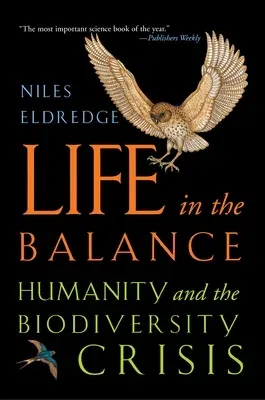In Life in the Balance, Niles Eldredge argues that the Earth is
confronting a disaster in the making--an ecological crisis that, if left
unresolved, could ultimately lead to mass extinction on the scale of
that which killed the dinosaurs sixty-five million years ago. Writing
for general readers, he reviews compelling evidence for this
"biodiversity crisis," showing that species are dying out at an
unnaturally rapid rate. He demonstrates the importance of maintaining
biodiversity, taking the reader on a journey that reveals the twin faces
of biodiversity--over thirteen million living species and the
ecosystems through which these species transform the sun's energy into
life-sustaining matter. Throughout, Eldredge shows how our own fate is
intricately linked with that of other species.
Eldredge, one of the world's foremost paleontologists, begins by taking
us to the heart of Botswana's Okavango Delta, considered by many to be
among the last "Edens" left on Earth--a place where a rich assortment of
organisms exist in natural equilibrium. However, it is also a place
where the results of human activity--pollution, clear-cutting,
water-diversion, encroaching agriculture, disease--now pose the same
ecological threats that, on a worldwide scale, put the entire planet at
risk. Eldredge then leads us on a fascinating exploration of the Earth's
organisms--animals, plants, fungi, the microbes that underpin all
life--and of the diverse ecosystems from the tundra to the tropics in
which these organisms live. It is a journey that demonstrates the
inherent value of the millions of species and ecosystems on Earth, and
the importance of biodiversity to the entire biosphere and to humans'
continued existence.
Eldredge concludes that humans not only are responsible for the
biodiversity crisis but also hold the key to preventing an impending
Sixth Extinction. He argues that we must, among other strategies, pledge
ourselves to sustainable development and the conservation of wild
places. An eloquent and passionate account by one of today's leading
scientists, Life in the Balance will draw new attention to one of the
most pressing problems now facing the world. In this book, Eldredge
explores the same themes that illuminate The American Museum of Natural
History's new Hall of Biodiversity, for which he is Scientific Curator.
The Hall is scheduled to open in spring 1998.

